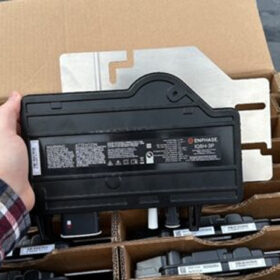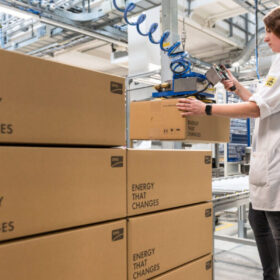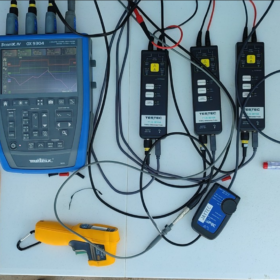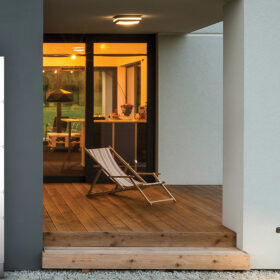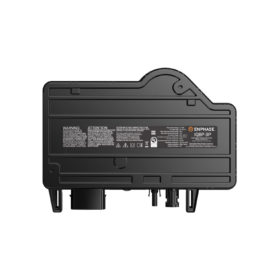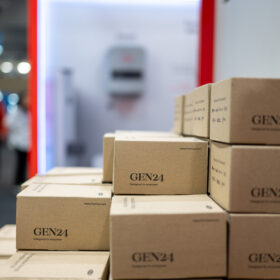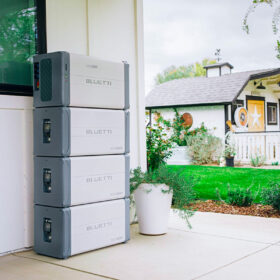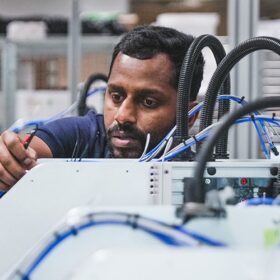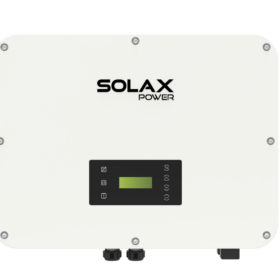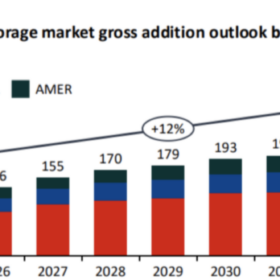Enphase unveils new three-phase inverters
Enphase has released 208 V three-phase inverters for the small commercial market. The advancing hardware comes with a specialised support team and tailored design tools.
SMA to build 3.5 GW inverter factory in US
SMA Solar Technology AG says it will open a new 3.5 GW inverter factory at an unspecified location in the United States in 2025. The German manufacturer is currently talking with several US states and potential partners to select the best production site.
New tool to detect faults in inverters released by PI Berlin
PI Berlin has developed a new tool to detect problems in inverters such as defective printed circuit boards, faulty switching algorithms, and deficiencies in components and sensors.
Redback Technologies compliant for flexible exports to Queensland grid
Redback Technologies has announced inverters certified as compliant with Queensland’s dynamic connections for energy exports. This enables homeowners to export energy back into the grid at a flexible rate so that energy output is only limited in roughly 2% of the time when excess power from PV installations would overwhelm the grid.
Enphase introduces commercial-scale microinverter
Enphase’s new IQ8-3P solar microinverter offers peak power output of up to 480 W.
Fronius’ Australian marketshare tumbles due to stock shortages, but company says backlog now clear
Fronius, Australia’s most popular inverter brand, has lost almost 35% of its marketshare this year due to major stock shortages. After a year of supply issues, Fronius Australia’s managing director told pv magazine that its backlog, including for the GEN24 Primo 10, should be cleared by the end of November.
Bluetti launches modular residential battery system
United States solar and energy storage solutions manufacturer Bluetti has launched a modular 7,600 W lithium iron phosphate battery system for residential settings with a flexible energy storage capacity ranging from 9.9 kWh to 19.8 kWh.
AIKO showcases ABC modules ahead of Australian launch
Chinese solar panel manufacturer AIKO unveiled its solar cell technology at Melbourne’s All-Energy event last week ahead of an impending entry into the Australian market.
Applications open for Victorian renewables manufacturing program
Applications are open for grants of up to $750,000 (USD 479,000) under a new Victorian government program that aims to support Victorian manufacturers to be part of the growing renewable energy supply chain and boost the production of renewable energy products and components.
Solax introduces hybrid inverter for 200% PV system oversizing
Solax claims its new hybrid inverters can oversize PV systems by 200%, making them an ideal solution for commercial rooftop installations. There are five versions, featuring rated power outputs ranging from 15 kW to 30 kW.
